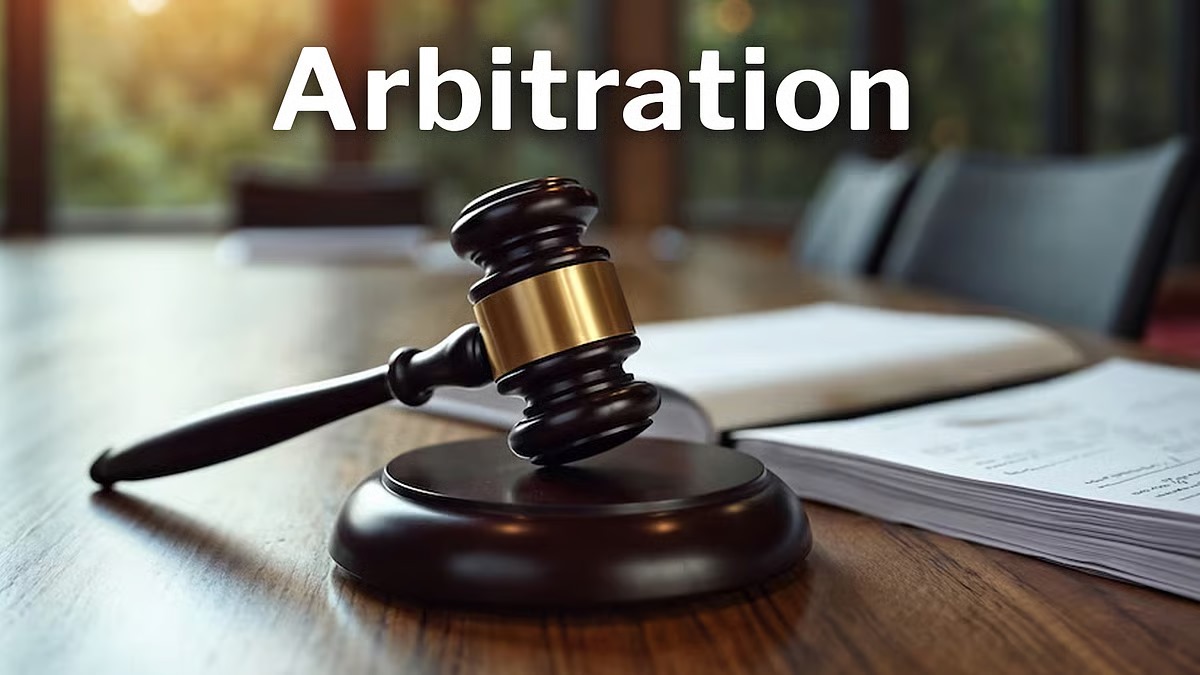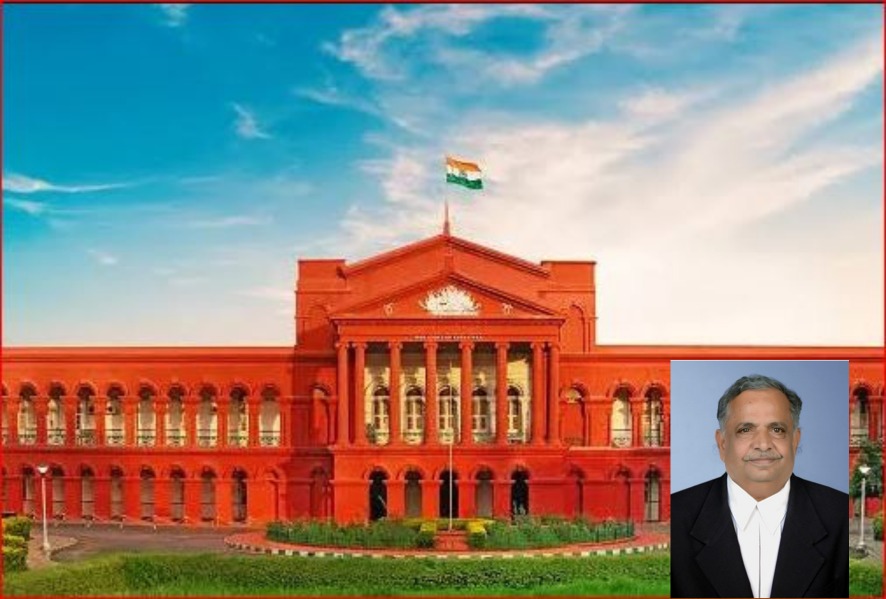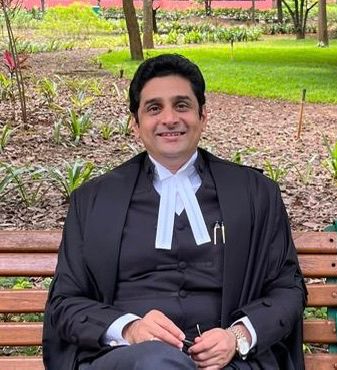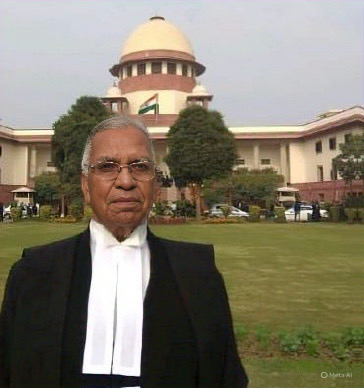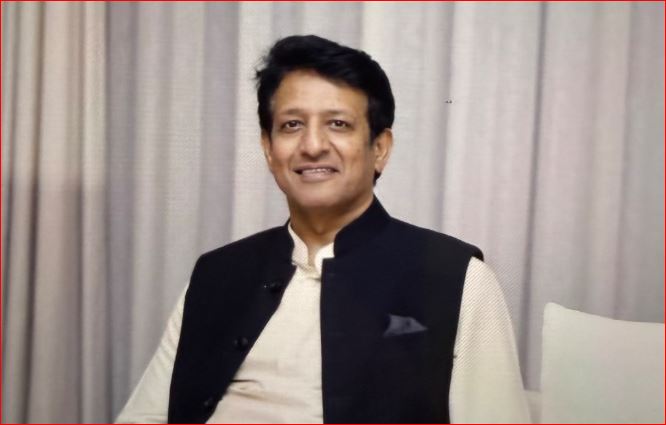''What is Arbitration?'' Notes on the topic by Mr. Anand Byra Reddy, Judge (Rtd) HCK.
- 09-November-2025 18:54
What is arbitration?
1 It a process of resolving disputes, other than through the normal judicial process, but achieving the same enforceable force, as a judgment of a court of lawWhat may take years to be decided in a Court of law, can be decided and closed - in arbitration, in months or sooner. And this governed by law.
The law governing arbitration, in India, is contained in the Arbitration and
Conciliation Act, 1996. ('Conciliation'— which is another alternative dispute resolution mechanism, is now construed and called as 'Mediation', and is covered under a separate law, now called 'The Mediation Act, 2023', that has come into force from 14.09.2023.)
Arbitration Agreement
2. The first requirement in a party seeking to invoke the arbitral process, (The 'Party',could be a person, or other legal entity— e.g., a registered partnership firm or an incorporated company) is the existence of an arbitration agreement with the opposite party, to submit to arbitration, any dispute or disputes which have arisen, or which may arise between them. It is possible for two disputing parties, who do not have an arbitration agreement, to voluntarily agree to submit to the arbitration process, even after the dispute has arisen, particularly when the parties want to settle and resolve their disputes in accordance with law, but do not have the inclination to spend the inevitable time, effort and expense, that is generally taken up in the
normal judicial process, through courts of law.
The law provides that an arbitration agreement should be in writing if it is contained in a document signed by the parties, or may be contained in an exchange of letters, telex, telegrams or other means of telecommunication —
which provides a record, including fax
The Arbitral Tribunal
3. The parties may agree on the number of arbitrators who shall adjudicate the dispute; However, it cannot be an even number of arbitrators (2,4,6 etc.). When the parties fail to determine the number, it shall consist of a sole arbitrator. The parties are free to agree on who shall act as an arbitrator, or they could agree on a procedure —to be followed for such appointment. If the parties fail to agree on the person to act as arbitrator, if the arbitration is to be conducted by three arbitrators — particularly in matters involving very high stakes, each party will name an arbitrator and the named arbitrators will nominate the third arbitrator, who will be the presiding arbitrator. In cases not involving higher stakes, it is usually a sole, or a single, arbitrator.
Constitution of the Tribunal
4. When a dispute arises and a party issues a notice to the other party, to appoint an arbitrator within 30 days from receipt of the notice, and if there is a failure or neglect to do so, the appointment is made by the High Court of the State, on an application. So also, in the case of an arbitration where the parties are not able to agree on the name of an arbitrator, or even in the case of an arbitration with three arbitrators - when the two arbitrators do not agree on the third arbitrator to be appointed, the High Court will make the appointment on an application to be preferred.
The arbitrator or the 'arbitral tribunal', as he or she — is also addressed as, is not bound by the Code of Civil Procedure, 1908, or the Indian Evidence Act, 1872, though the principles governing those laws, are generally followed in practice. The parties are free to agree on the place of arbitration, the language or languages, to be used in the proceedings, as well as any particular procedure to be followed. If they do not, the arbitral tribunal can.
Commencement of Arbitration
5. The arbitration proceeding is deemed to have commenced on the date the request for reference to arbitration is received by the opposite party. Within the period of time agreed upon by the parties or determined by the Tribunal, the person making the Claim shall state the facts and may produce such documents
in support thereof. The opposite party shall then state his defence in response to the Claim. And he may also submit a Counterclaim, in addition, which shall also be adjudicated by the tribunal, in the same manner, as if it was a Claim — if such Counterclaim is within the scope of the arbitration agreement.
The above process, of exchange of pleadings — should be completed within a period of 6 months from the date the arbitral tribunal received the notice, in writing, of its appointment.
Unless otherwise agreed by the parties, the tribunal shall decide whether to hold oral hearings or whether the proceedings shall be conducted on the basis of documents and other material produced before the tribunal. Each party shall be furnished with copies of all documents and material produced and relied upon by the other party.
Unless otherwise agreed by the parties, if the Claimant fails to communicate the Statement of Claim within time as may be specified the arbitral tribunal shall terminate the proceedings.
And if the Respondent fails to communicate the Statement of Defence within time as may be specified- the tribunal shall continue the proceedings. This will not absolve, or excuse, the Claimant from still establishing his case. The tribunal will have the discretion to treat the right of the respondent to file such Statement of Defence, as having been forfeited.
If a party fails to appear at an oral hearing or to produce documentary evidence, the tribunal may continue the proceedings and make the arbitral Award on the evidence before it.
If there is a situation where a witness is to be compelled to appear before the Tribunal, as the Tribunal may not have any power to issue a summons to such person or persons, the assistance of the competent court can be taken through the Tribunal. Any person summoned through the process of the court, will be subject to the rigour of a court summons.
The arbitral tribunal shall decide the dispute in accordance with the substantive law— in force in India (The Code of Civil Procedure and The Evidence Act, referred to above, are not 'substantive' laws, theyare 'procedural'laws) In making the Award, or deciding the dispute, the tribunal will take into account the terms of the contract between the parties and trade usages applicable to the transaction.
Unless otherwise agreed by the parties, in arbitral proceedings with more than one arbitrator, any decision of the Tribunal shall be made by a majority of its members.
6. The Award, or the Final Decision, shall be made by the arbitral tribunal within a period of 12 months from the date of completion of the pleadings of the parties, which process of completion of pleadings, should be completed within 6 months from the date of the arbitrator receiving notice of his appointment.
The parties may, by consent, extend the period for making the award for a further period of six months — on the expiry of the period mentioned above. If the arbitral tribunal fails to make the Award even after the extended period, the mandate of the arbitrator shall terminate. However, a competent court may extend the period, either prior to or after the expiry of the period, on an appropriate application.
Fast Track Procedure
7. The parties may, before or at the time of appointment of the tribunal, agree in writing to have their dispute resolved by a 'fast-track' procedure. Such procedure will require the tribunal to:
a. decide the dispute on the basis of written pleadings, documents and submissions filed by the parties, without any oral hearing;
b. to call for further information or clarification from the parties in addition to the pleadings and documents filed by them;
c. to hold an oral hearing, only if all the parties make a request or if the tribunal considers it necessary;
d. may dispense with technical formalities in a oral hearing and can adopt appropriate procedure for expedition.
An Award under the fast-track procedure, shall be made within period of 6 months.
8. The tribunal may encourage settlement of the dispute and with the consent of the parties, may resort to mediation or other procedures, at any time during the proceedings, to encourage settlement. An Award on agreed terms can be drawn up if the dispute is settled, which also carry the enforceable force of a court decree.
An Award shall be in writing and signed by the Tribunal. The Award shall give reasons upon which it is based, unless the parties have agreed that no reasons need be given or when the Award is on agreed terms- on a settlement having been arrived at. Signed copies of the Award are to be given to the parties. The Tribunal may at any time during the arbitration proceedings make an Interim
Award — on any matter with respect to which it may make a final arbitral Award. Unless otherwise agreed by the parties, where the award is for payment of money, the tribunal may include interest on the sum awarded. The tribunal may also fix the costs of the arbitration — payable by the person against whom the Award is made. Such costs would include the fees of the arbitrator, legal fees and expenses etc., as specified under the above Act, 1996. The arbitral proceedings shall be terminated by the Final Award.
Or the tribunal shall issue an Order for the termination of the proceedings in cases where:
• The Claimant withdraws his claim, subject to the sayof the respondent who may have a legitimate interest to obtain a final settlement of the dispute; The parties agree on the termination of the proceedings.
• The arbitral tribunal finds that the continuation of the proceedings has become unnecessary or impossible.
Grounds of Challenge of an Award
9. An arbitral Award may be challenged only by an application for setting aside such Award only if the party who challenges, is able to show that he was under some incapacity, or the arbitration agreement is not valid in law.
That the party making the application was not given proper notice of the appointment of an arbitrator or was otherwise unable to present his case; That the Award deals with a dispute not contemplated by or not falling within the terms of the submission to arbitration or exceeds the scope of submission to arbitration.
Or if the Court finds that:
The subject-matter of the dispute is not capable of settlement by arbitration under the law, or
The Award is in conflict with the public policy of India — i.e.
?i)?The making of the Award was induced by fraud or corruption; or
It is in contravention with law;
It is opposed to morality or justice.
An application to set aside an Award shall not be made after 3 months after a party had received the Award. A delay of 1 month beyond the above period, may be condoned by the court for good reason, but not beyond that.
An application challenging an Award shall be disposed of within a period of 1 year.
The Award is final and binding on the parties. When the time for challenging the Award, by filing an application as above said, has passed, the Award can be enforced in the same manner as if it were a judgment and decree of a court of law.
If the Award is challenged as aforesaid, that by itself will not make the Award unenforceable, unless the court grants an order of stay of the operation of the arbitral Award. In any such application for stay, the court may, subject to such conditions that it may impose, stay the operation of the Award, for reasons to be recorded.
Appeals shall lie to a court authorised by law to hear appeals from a court which passes orders relating to arbitration proceedings, as follows:
a. When a court refuses to refer the parties to arbitration when sought for.
b. When the court grants or refuses to grant interim Orders — as provided under the Arbitration Act, to protect a party's interest pending arbitration.
c. When the court sets aside an Award or refuses to set aside an Award.
There is no second appeal to a higher court, except the Supreme Court of India.
?
-Anand Byra Reddy. Judge Rtd.
